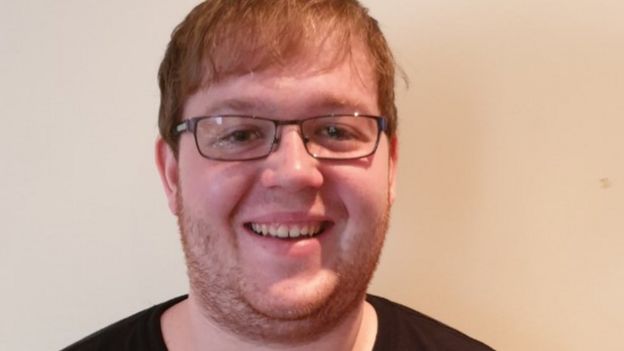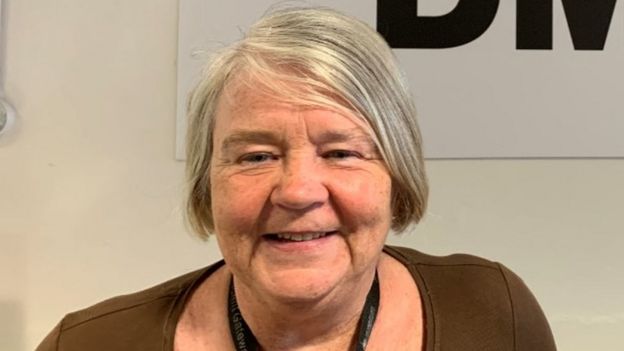Confusion over what is meant by disability, and poor awareness of a widely available fund, has led to 60% of eligible students missing out on financial support at university.
With A-level results due out on Thursday, thousands of young people will soon be deciding whether to take on the expense of a university education. For those students who are disabled and have additional access requirements, university could prove much more expensive than average, perhaps prohibitively so.
A report from the Department for Education in England, released earlier this year, revealed 60% of eligible students had never heard of Disabled Students’ Allowances (DSAs) – which could make attending university more achievable.
The long-established UK-wide fund can provide up to £30,000 for support including assistive computer software, transport, mentors or British Sign Language interpreters.
Many believe DSAs need better promotion in schools so that they are taken up by more students who do not realise their access needs can be met.
Only 13% of those who received DSAs had been informed about them by their school or college, according to the report.
The Department for Education says it is trying to let more people know about the fund.
“The Student Loans Company already include information about the allowance in information packs about student finance and we are considering how best to improve awareness, including among school staff,” it says.
And it seems that the advice given by some schools and colleges has been counter-productive.
Matthew has been diagnosed with anxiety. When he applied to study forensic science at De Montfort University, staff at his college advised him not disclose his mental health difficulties on his university application to avoid any prejudice. So he didn’t.

“I was told by one of the staff, it would make my application lesser,” he says.
College for Matthew had been challenging – anxiety made it difficult for him to focus and he struggled to talk to people.
Ignoring the advice he had been given, Matthew mentioned his anxiety during a visit to the university and was encouraged to apply for a Disabled Students’ Allowance – which he hadn’t known about. He received support by the end of his first term.
When Rose Ann applied to study French and German at the University of York her school also failed to advise her of DSAs.
At the time she had been managing an eating disorder – which the school knew about.
“I didn’t really realise that DSAs included mental health so I didn’t actually apply,” she says. “I had a year out, because I was in hospital, and during that year I had a friend who had mental health problems and her school told her she could apply – so that’s how I knew about it.”
The system relies on students first knowing about DSAs and then completing a form with details of their needs – which can be hard to admit at an age when young people are striving for independence.
Rose Ann admits she was “sceptical” about disclosing her mental health difficulties.
“I wanted to be independent. I thought, ‘I’ve gone through school without getting support so I might as well do that at university too.'”
Later, after receiving a diagnosis of autism, she felt moved to apply and received funding for a laptop and a study skills tutor.
“Having a mentor got me on to the next stages of my recovery,” she says. “I’m not sure I’d have got through uni without it.”
Tina Sharpe, the Disability Services Manager at De Montfort, says thousands of students are let down every year by a lack of support and awareness.

“Disclosure is the big stumbling block – 60% of the problem,” she says. “The ones that don’t disclose, because they think they’ll be discriminated against, slip through the gaps.”
The Department for Education has sympathy, but says disclosure is the only way of getting financial help.
“We know that students may find it difficult disclosing their disability however, without students declaring, we are not able to know if a student would be eligible for support,” it says.
After disclosure, Tina Sharpe believes the other main barrier to getting DSAs is completing the application itself.
“It’s a disjointed process. They have to send off medical evidence, then there’s an assessment of needs – and they’ve got to make that booking to be assessed, it’s all reliant on the motivation of the student.”
Sharpe says leaving the application to students could be seen as empowering, but she is concerned the procedure is too complicated. She believes students should be steered through the process with universities having more control.
“The liaison between schools, universities and colleges need to be better – they’re under a lot of pressure but it needs to be done, somehow.”

I have depression, what support might I get at uni?
As advised by Tina Sharpe

The government accepts the report’s criticism that the application process for DSAs is demanding. The report found that 31% of young people found the application difficult, while 32% found it hard to source medical evidence.
Making phone calls and attending meetings and assessments can exacerbate anxiety for some people, especially for those with learning or communication difficulties.
Rose Ann found it difficult. Her anxiety increased at the thought of not receiving funding. She describes it as a “stressful process”.
Nearly 60% of applicants also have to pay for a doctor to provide evidence. If you have more than one condition you may incur multiple charges, typically starting at about £18.
The report also revealed that those with mental health problems are most likely to have to fork out money.
When Phoebe, from Exeter, applied to do film studies at De Montfort using the online form, information about Disabled Students’ Allowance popped up. She tried to fill it in with details of her depression, but she says she found it such a “grey area” she gave up.
“It was like ‘Am I allowed it?’ and that put me off. With mental health you need evidence. I had to write to my doctor and he was quite slow with replying. It was an anxious process as I didn’t really understand the application – so I left it.”

Phoebe got on to the course and moved to the university in Leicester. Once there, she found social situations overwhelming.
Soon after term started she received a diagnosis of autism and was encouraged by the university to apply for a Disabled Students’ Allowance. She found having a firm diagnosis made all the difference when putting together her application.
“It’s set in stone,” she says. “Anything with mental health – you have to chase a lot.”
Phoebe’s DSA provided a printing allowance to reduce the anxiety of going to the library to do it, a study skills mentor to help her keep on top of work and a mentor who she sees once a week.
“We get along quite well and I don’t have to hide the traits or the person that I am, so I can be free – it doesn’t matter if I play with my hands or fidget.
“I don’t think I would have been as healthy in dealing with university without my DSA”.
A phone app called Brain in Hand is one of the newer support mechanisms which those who receive Disabled Students’ Allowance can access.
The app – which aims to reduce anxiety and improve independence – helps students with time management. It also prompts them to write down strategies for stressful situations which can be useful in moments of panic. Users are also directly linked to a team of human support staff.
Matthew, who experiences anxiety, says it helps him when he’s stressed about getting home.
“It will link me to the bus timetable and tell me what to look at,” he says. “Normally I’d write the information all down my hands and arms. It immediately gives you a breakdown to a solution.”
The app also prompts Matthew every two hours to rate his feelings on a traffic-light system. If he chooses red, a professional will contact him immediately. “You’re still able to be independent but they’ll help you out,” he says.
The government report concluded that knowing about the availability of Disabled Students’ Allowance before university helped two out of five disabled people decide to apply for higher education. It found the numbers positive, but admitted “not enough students know about DSA at the point of application”.
It adds that those who applied to university without knowing about the allowances would have had their minds put at rest.

Disabled Students’ Allowances:
Information from the Department for Education for England

Student advisor for Disability Rights UK, Rundip Thind, agrees more needs to be done in schools and colleges to let people know what is available.
“Not knowing what you may get can result in some people not applying,” he says. “It’s sometimes felt that what you get isn’t worth the hassle and students would rather not go through an assessment process.”
He says awareness needs to happen at an earlier stage in order for DSAs to have a greater impact.
Matthew and Phoebe have completed their first years at De Montfort University, while Rose Ann has recently graduated from York.
Source: BBC News